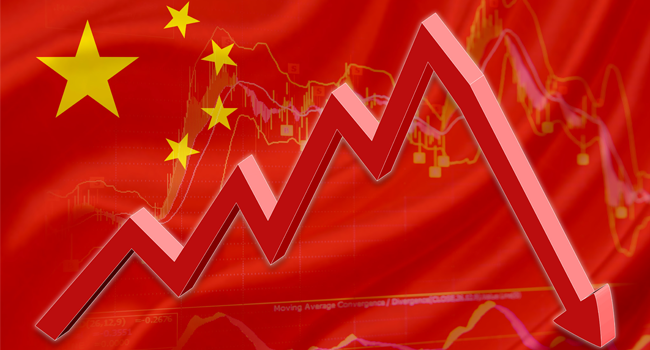After a run of heavy falls on global stock markets, Brewin Dolphin’s Head of Research Guy Foster looks at the causes of the turbulence and their potential impact. His conclusion is that the correction in share prices will bring opportunities and that the long-term outcome for investors is likely to be positive.
Shares fall after Chinese devaluation
Shares have fallen sharply during August. The trigger has been turmoil in the emerging markets and most specifically China. The potential for a Chinese devaluation was something we discussed towards the end of July and has motivated our decision to be cautious on both emerging and Asian markets (with the exception of Japan). Now that it has happened what will the impact be and how should we react?
Why does China’s currency matter?
When a country devalues its currency it makes imports more expensive and exports cheaper. This has hit both Asian and other emerging markets the hardest.
The impact on economies which sell to that country is that they will have to reduce prices or accept lower sales. Regionally, other emerging markets are most exposed to this – notably Russia, Brazil, Chile, the Middle East and other commodity-rich economies. Other markets may, however, also suffer as they compete with or sell to China.
From a corporate perspective, the disappointing thing is that a number of the companies affected by the fall in commodities prices form a substantial part of the UK stock market – naturally these include the large energy companies, such as Royal Dutch Shell and BP, and the mining companies. The UK also has some companies such as Burberry which compete in developing markets. Not that many UK companies compete directly with China though – it may be remembered it has been one of the shortcomings of the UK economy that it does so little business with the region.
Investors have begun to fret that the price deflation will now impact the revenues of a greater swathe of companies – there should, however, be plenty more radical monetary solutions to the problem of UK deflation available to a Treasury and Bank of England who together control the issuance of currency. So we remain of the opinion that in the absence of inflationary pressure, the UK recovery will continue and stocks will reflect that.
What should be done now?
The wisdom of the great financial minds of the present and the past is worth considering at this stage. Assets are cheaper when prices have fallen so it would be unwise to sell indiscriminately. As Warren Buffett would put it, investors should be “greedy when others are fearful and fearful when others are greedy”. At the same time, when the risk of a Chinese devaluation becomes a reality, the prospects for some companies may have changed as a result or, as John Maynard Keynes put it: “When the facts change I change my mind”.
The difference between those companies selling commodities and those selling branded goods is as wide as that between night and day. If you sell a commodity you take whatever price is offered. If you sell a branded good then you have more scope to maintain or increase your price. Commodity prices are inherently difficult to forecast. Demographic changes in Asia’s mammoth national populations, whilst still challenging, represent a growth opportunity that is more tangible.
Is the bull market over?
The most likely outcome for equity investors is positive. Whilst the outlook for the commodity producing sectors and regions may be very uncertain, the fundamental valuation support for equities has just received a boost because the probability of an interest rate increase has diminished. While interest rates are so low equities, and even bonds, look good value. Furthermore the UK energy producers’ loss is the UK consumers’ gain as energy prices have fallen. Going into 2015, the developed world saw the first coordinated increase in real incomes (increases over and above the rate of inflation) in several years and further falls in energy prices will accelerate that trend.
We are looking vigilantly for the opportunities which this correction will bring.
The value of investments can fall and you may get back less than you invested.
We or a connected person may have positions in or options on the securities mentioned herein or may buy, sell or offer to make a purchase or sale of such securities from time to time. In addition we reserve the right to act as principal or agent with regard to the sale or purchase of any security mentioned in this document. For further information, please refer to our conflicts policy which is available on request or can be accessed via our website at www.brewin.co.uk.
If you invest in currencies other than your own, fluctuations in currency value will mean that the value of your investment will move independently of the underlying asset.
The opinions expressed in this blog are not necessarily the views held throughout Brewin Dolphin Ltd.
Related Articles
-
News
 July 19, 2012
July 19, 2012Life cover costs likely to increase for women
Currently life insurance premiums for women are less than for men, as statistically, women tend to l.... -
News

A window of opportunity
Fixed premium policies that are already in place when the ruling comes in are unlikely to see a pric.... -
News

Slam Dunk! Acumen welcomes a new member to the team
After a lengthy search for the right candidate, Acumen is delighted to welcome on board Alex Dun....

